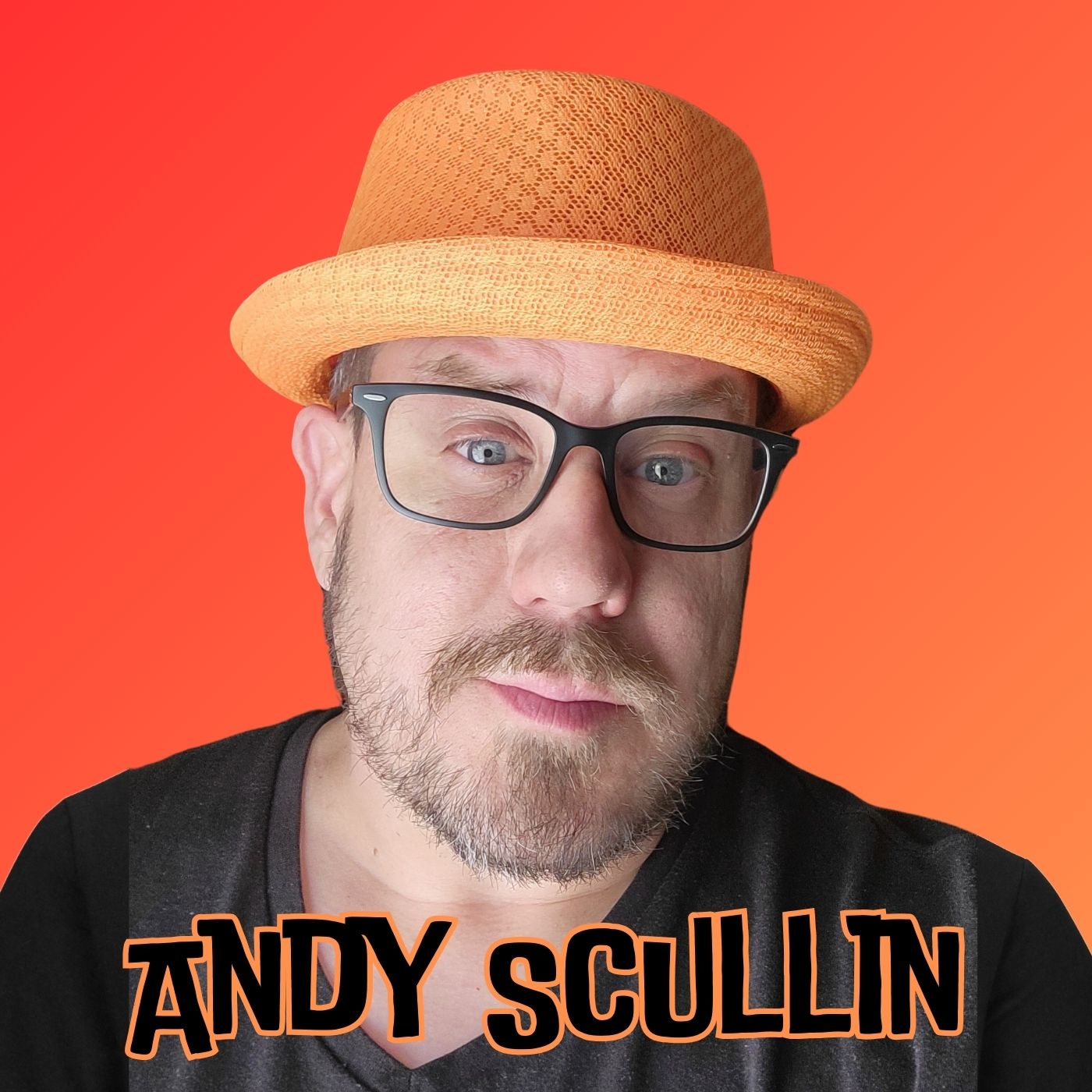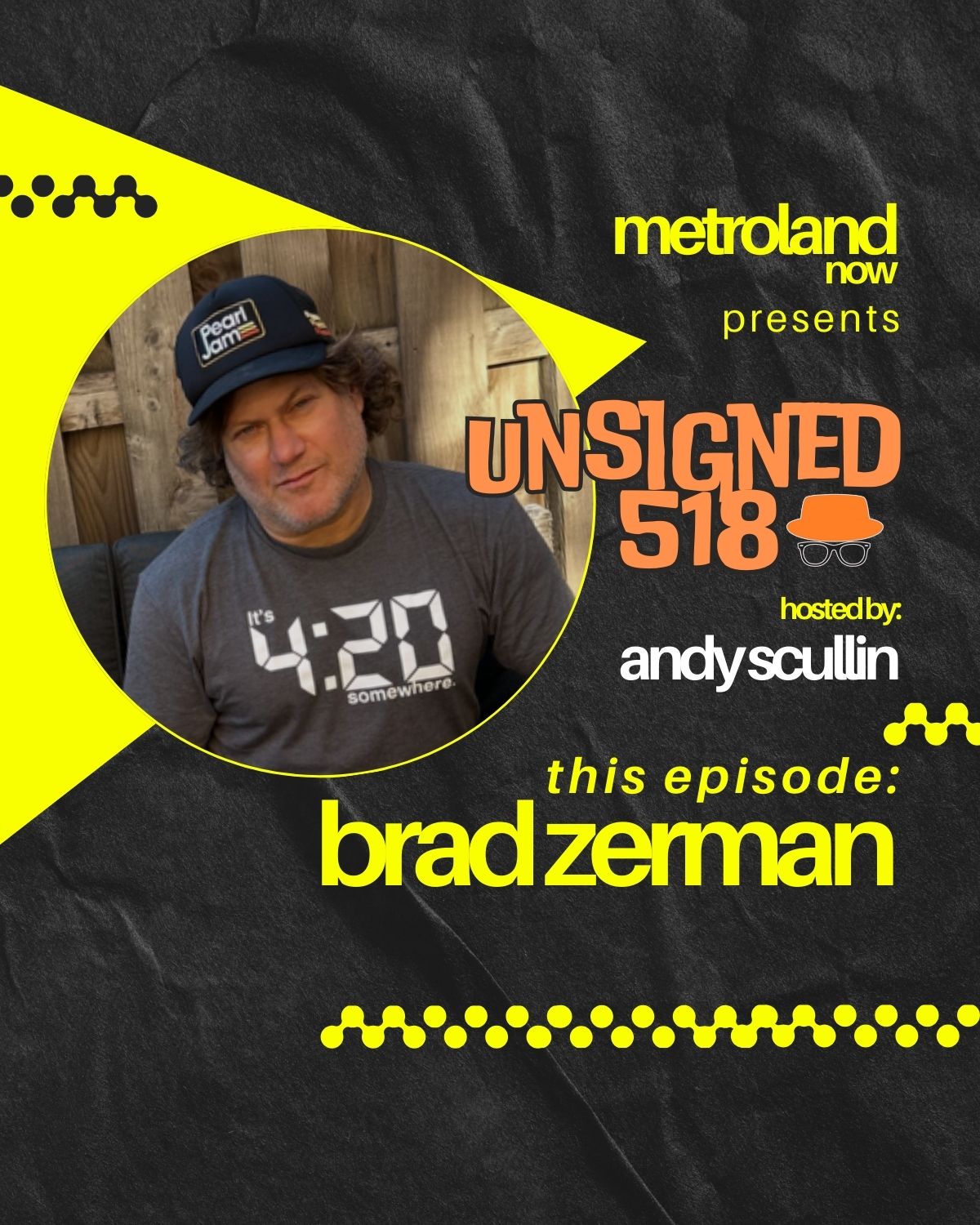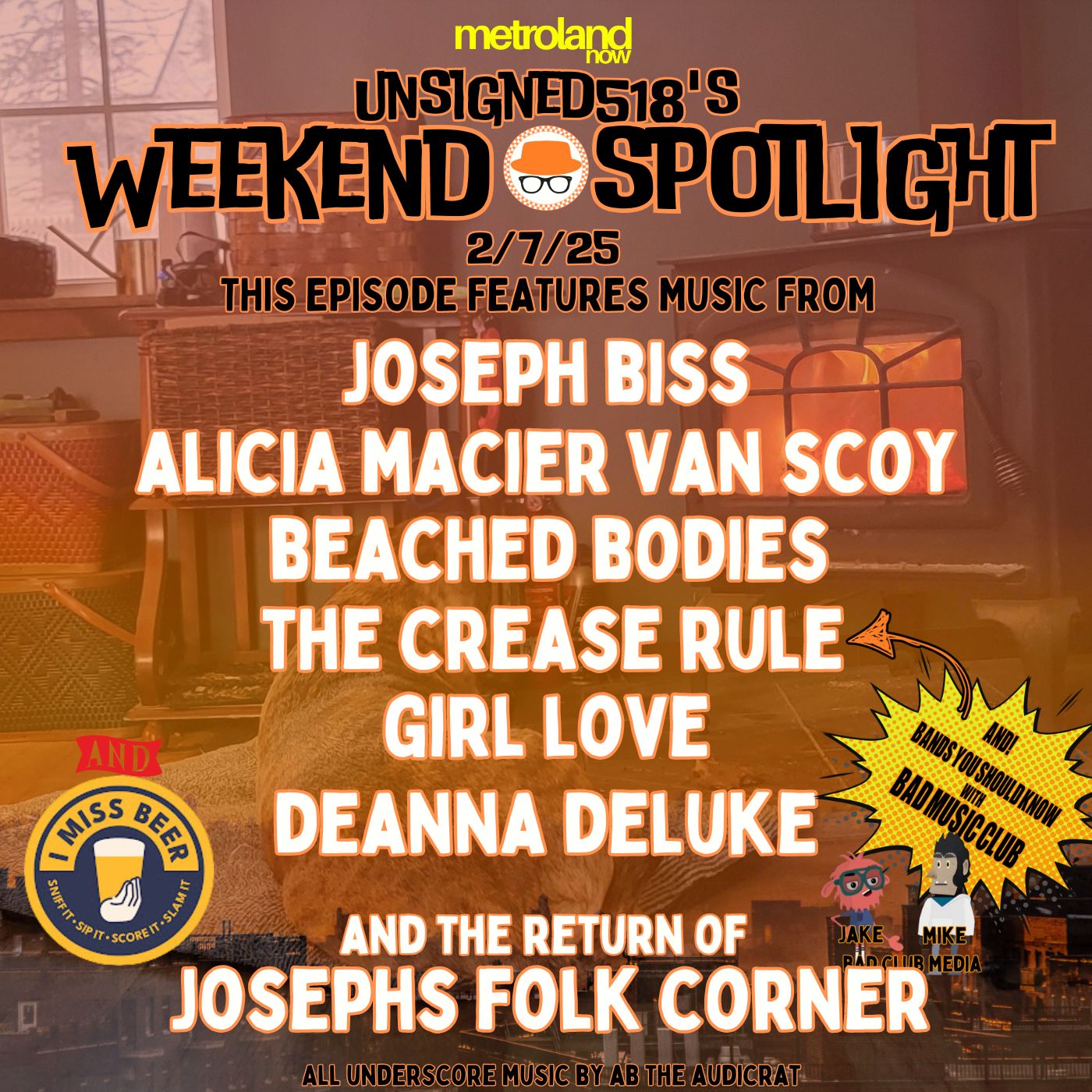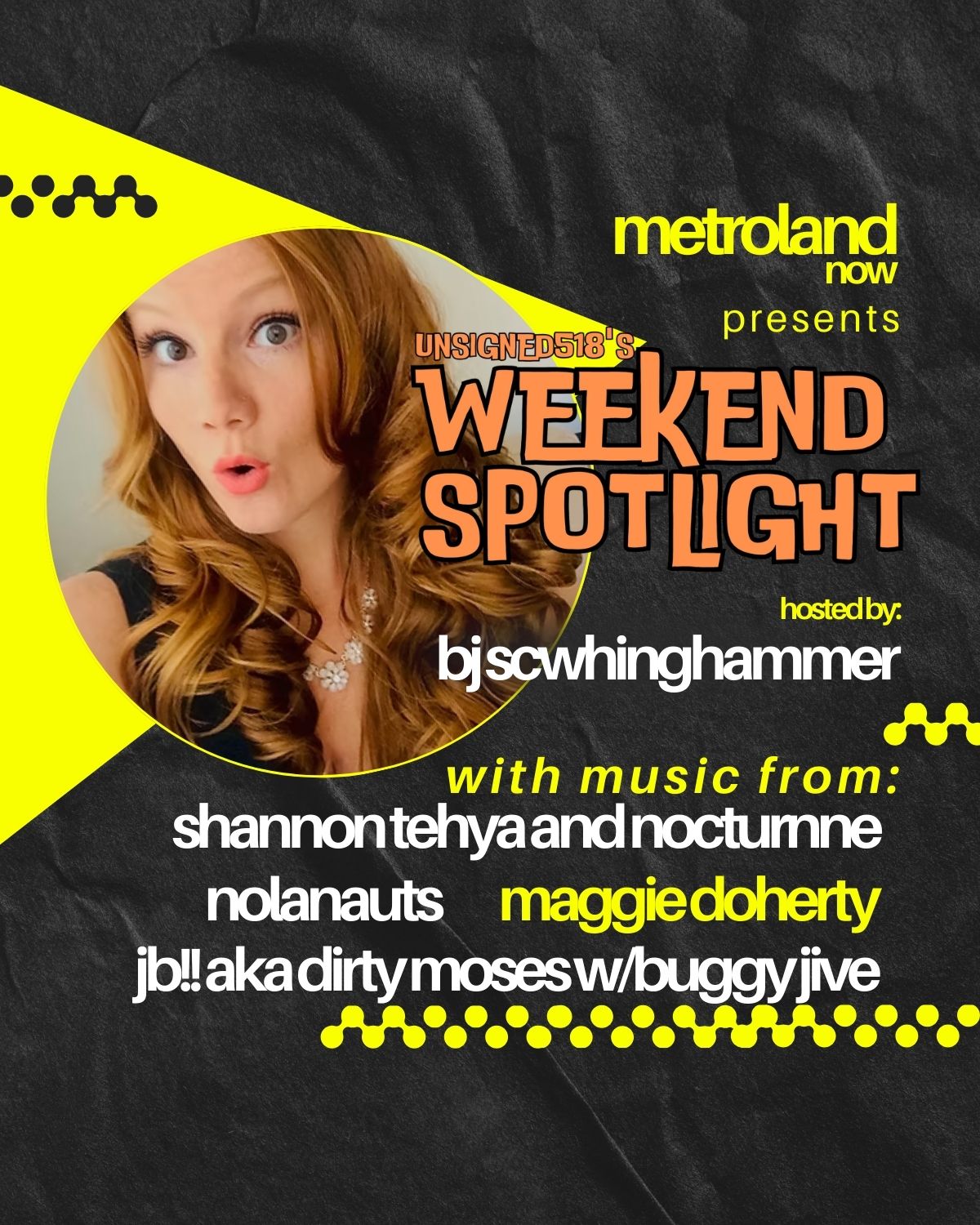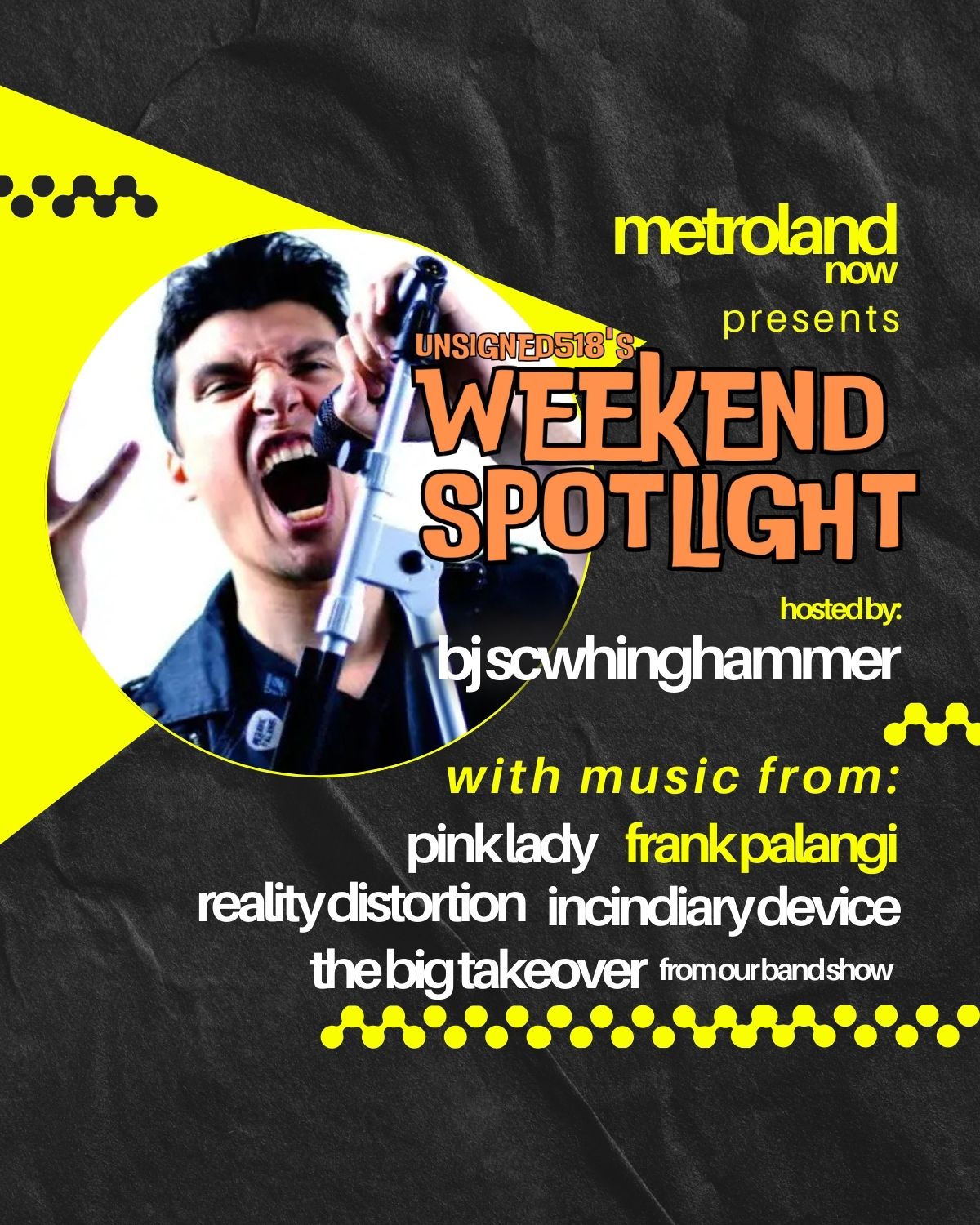[00:00:01] Speaker A: He was born on a Saturday in 73. He loves punk rock music fighting the 13 cabin, the dazzle jazz rock now on the beat guitar with the short with radio bass his motherfucking envy scar, motherfucker. Cause here he comes, Andy Sculling wearing his or his hands.
[00:00:27] Speaker B: Welcome to unsigned 518. I am, I am on the phone actually with Brad Zurman. And Brad, you're the, it's the CEO of Seven Points, correct?
[00:00:37] Speaker C: Yes.
[00:00:38] Speaker B: And, and I guess why don't you tell, tell my listeners a little bit about what, what Seven Points is and then we'll, we'll get into the, the nitty gritty, I guess.
[00:00:48] Speaker C: Sure.
Well, Seven Point was founded in 2014 as a applicant to open a medical dispensary in Illinois.
And I was awarded a license to open a medical dispensary and I opened one in 2016.
So we had one of the first 50 stores in Illinois.
But then most of the independent stores sold bigger companies when it was about to legalize in Illinois.
And so I did that and I was involved in an ATM company that I sold also. And I basically reinvested all that money into applying for more licenses.
So I ended up winning with a group of other people, a couple grow licenses and transport licenses and this dispensary.
And so we couldn't really afford to do all of that. That would probably cost like $30 million.
We're just an independent company and 51% is owned by Social Equity Partners, which is really what was required to get a license.
So we're not like well funded or anything like that. We're not part of some big company that is traded on the stock exchange or anything like that.
So we sold the grow licenses and we borrowed everything that we could to build a new construction building in the area where we won this recreational dispensary license, which is Danville, Illinois. It's central Illinois, about a half hour from Champaign, where the University of Illinois is.
But it's two and a half hours south of Chicago where I live.
[00:02:43] Speaker B: And you know when, when you like first got like the switch over, like when things were going recreational and like it was such a new, new business. Like, did you have faith going into it that this was going to be the right move or was it just like totally shooting for, you know, like not knowing what's coming? Like.
[00:03:04] Speaker C: Yeah, the whole thing was like shooting from the head.
The, the whole industry is brand new, so you couldn't really like make a decision that, you know, you knew you're gonna crush it or anything. Because we didn't know how it was gonna end up no matter what happened.
[00:03:23] Speaker B: Right.
[00:03:23] Speaker C: In fact, we sold the dispensary for a lot of money, and a lot of that was on paper.
And the public company stock ended up going down dramatically.
And so I lost millions of dollars in that sale, But I did get a few, too.
So I was able to reinvest that into what we did now.
But with COVID and everything else, it took a long time to get there. So there was a lot of, you know, hurrying up and waiting.
[00:03:55] Speaker B: Right, right.
[00:03:57] Speaker C: So, you know, but ultimately, Seven Point today is a combined music, and we shop this completely independently owned.
It's run by one of my business partners, Amy Lee, and I.
Amy was one of my employees. She was our first employee in the first medical store, and she. She lives in the area where that store was. And so, you know, we just had a really good working relationship in the food store and wanted something more on this next go around than what you commonly see in dispensaries. So we felt like we had an obligation in the customer base, which we believe are really mostly medical patients anyway. Not everyone's buying cannabis to get high.
People are still ultimately patients because they're usually using it for one thing or another that they're not happy with.
[00:04:57] Speaker B: Right, right.
[00:04:57] Speaker C: Sweet sleep, pain, anxiety, Just basic things. Even so, you know, we're just used to all the education and the medical advice that we all are trained to show our patients how we could use cannabis and not get high necessarily, or maybe not even smoke, but still treat their conditions. And so we felt like with this one, we just needed to take it to the next level.
And so we got this technology from another company that we use in the store so that instead of walking to a wheat shop where most of the products are just, like, behind glass on a shelf.
[00:05:38] Speaker B: Right.
[00:05:39] Speaker C: You know, nice and neat. It's like, why do they have the glass there? There's no weed in those packages anyway.
And why can't you just pick them up and read the label and check it out? So we have over 400 slots in this.
In this technology throughout the store with readers and monitors. So you can pick up.
You could pick up, like, a pack of joints or a pack of gummies, and you set it down on the reader, and then it reads the barcode, and the.
Everything about that product will pop up on the display right in front of you. And then you could, you know, see other strains or flavors or whatever.
We'll group everything together so we don't need a million products on the display. They can just see all of them on the screen. And then they could ultimately just order from that screen and put in their phone number and so we'll know who's ordering this. And so we made it so that people could come in and not feel pressure to talk to the bud tenders, you know, because a lot of people are just trying cannabis for the first time, and they don't. They don't even know what to ask for. Or maybe they tried something their friend gave them at a party, like a gummy or something, and they have no idea what it is. And so we could give people the tools to learn a bit about it. And then we have bud tenders behind the counter, but also on the floor, showing people how to use the technology and answering questions.
[00:07:09] Speaker B: Yeah, and I've always found that budtenders in any dispensary are. Are like the linchpin, you know, they. They hold the place because, yeah, people that don't know or people that have. That have even, like, maybe used their cannabis with, like, a bit of shame, you know, due to, like, a social stigma, and are now like, oh, you know, shit, I'm just gonna go check it out and see what they have.
I always say, like, just go up to the bud tender, tell them exactly what you're looking for, and they will point you in the right direction, you know?
[00:07:43] Speaker C: Yeah, I mean, that's true. And I don't know how it works in every state, but I know in Illinois, our vendors provide a lot of free product to us for the budtenders to use and try so that they can honestly say to customers if they like it or not. And we distribute those free products, like, weekly to the team. And on top of that, we give them a real serious benefit of basically our wholesale price that we pay for the cannabis is what the staff pays for it. So we don't want to make money off our team. We want them to explore all the products that they are interested in and.
[00:08:26] Speaker B: And get them excited, you know, because that's like the. That's easy marketing if. If they're actually excited about a product, you know what I mean?
[00:08:35] Speaker C: Like 100%. But, like, you know, if you can't afford to try all the products in the store or you didn't get those samples from the, you know, vendors, like, how would you really even know? Maybe, you know, the couple products that you're used to using. But, like, we have a thousand products, and so they're really accessible to the team and they have a lot of Experience with it. And so, you know, it's good. We have that excitement in our store because of the energy from the music and music videos that are in there. Yeah.
[00:09:07] Speaker B: So tell me like a little bit about, you know, the, the music side of things, like at the store. Like is it like a full on, like browse records, you know, and that type of vibe, like integrated right in with it.
[00:09:21] Speaker C: Yeah, Yep. So it's all integrated. So there's like you can look up pictures on seven point, like spelled out seven P O I N T dot shop. And I'll.
[00:09:33] Speaker B: I'll link to it in the show notes so people can find it.
[00:09:36] Speaker C: Yeah, so like, you know, you can see, but I'll explain how it's laid out. So it's a pretty big store, the whole building. 6,500ft.
[00:09:43] Speaker B: Wow.
[00:09:43] Speaker C: And the sales floor has these six displays that are like mounted on the floor across the whole store. And those displays have this technology and they have tons of accessories and supplies. So we have like really like more of a mart than a dispensary because we have over 5 or 600 non cannabis SKUs in our store. It could be snacks, non thc drinks, bongs, papers, safes, candles, whatever.
And then also the vinyl records. So our store is all intermixed. So one, one rack might have vapes and then the other one next to it might be hip hop, the next one might be flower and then country.
And so we have the top albums from those genres on the. On the side of the store, where in the middle we have most of the accessories in some of the brands. So it's categorized more by brand in the center on these place. But then we have this really long wall that has nine sections, five of which are weed and four are music genres. And so every other one is music or cannabis.
And at the top of the music sections, we have video music videos running from that category without the sound. And so we're just trying to offer more of like the cannabis experience with all the learning and education and all the packaging around the store.
And then also offer the more music experience where we are offering, where we have music in the store, we have four music videos playing from those genres.
Hip, hop, pop, country and rock. And then that like in most record stores that I go to, they typically sell a lot of used records. And so we all know how used record stores set up with, you know, the cabinets and. Yeah, alphabetical order by genres. So we don't sell used records because people would probably be staying in the store for too long then the state would want them to be there.
So we sold new records only and re released records.
So we're getting records the same as any other independent record store. Like on the day that, you know, the record drops, we already got it three or four days before that. So we could price it and put it out on the right day. And then those records are on the bottom rung of those displays throughout the whole store. So we have hundreds of records on the bottom rung, like below the accessories.
And so you can see the front part of the album, you can see the COVID the album art. So that makes our store beautiful just in and of itself, just all the album art in the store.
[00:12:44] Speaker B: And it feels like it would be like a more welcoming environment, you know, and like you said, you know, you wouldn't want people to like hang out forever. Obviously. Like, yeah, but like to see the records and the music videos and the music and the vibe and the accessories, like, yeah, it creates a different. Like, because some dispensaries, especially like in the earlier days, like, you know, I think we're kind of catching up, especially like here in New York. But like, they felt a little.
[00:13:13] Speaker C: Like.
[00:13:13] Speaker B: I don't know, like institutional or like almost like a doctor's office or a dmv, you know, like, it felt like a dmv. It was just like, stand in line, get your rations, get the, the out of here. Like, yeah, well.
[00:13:28] Speaker C: And our first medical store was the opposite of that too, because I had already been throughout, like Colorado and they had really old stores that had been medical for so long. And then when it finally went recreational, the stores were kind of like old and dated and a lot of drywall, like a medical office, like you're saying. And our food store, which is. There's probably a section on our website, but I'm not sure.
Our store was more like a spa. We didn't have any drywall, really. Like in between rooms we had polycarbonate, which was like a plastic that you could still see light through it. And so it's just more of a chill vibe. Like people get a fight in the doctor's office, you know, and like these sterile weed settings. It's like, then going to get your weed shouldn't be like going to pick up your dry cleaner. It should be a little better or.
[00:14:21] Speaker B: Going to renew your license, you know.
[00:14:23] Speaker C: Yeah, it's the same thing. Like, who wants to go to a weed store? It's terrible.
[00:14:28] Speaker B: Yeah.
[00:14:28] Speaker C: You know, you have to show your id. You might have to wait, you know, without a fun thing but it can be fun while you're waiting, while you're listening to music, you're looking at the records while you're in line that are right next to you. Because it's really the. Wherever you are in the store, there's something for you to pick up and check out. All the bongs are out. We sell volcanoes and gravity bongs. And.
And so now the other two things that we have besides the music and the album art is we have like from Seattle, there's a design firm called Ames Brothers.
So I don't know if you heard of them, they do like Pearl Jam concert posters.
[00:15:09] Speaker B: I love Pearl Jam, but yeah, yeah.
[00:15:12] Speaker C: So I'm a big fan. So I contacted Ames Brothers, we hired him to do a 2,000 square foot mural design for our store.
And it's like wallpapered on there. And so it starts on the exterior awning of our store. It goes through the lobby and then through the sales floor and it's really cool. It's just like all like asteroids and musicians and space and you know, weed music vibe. And then the other thing that we bring for people to look at is like museum quality rock and roll sign memorabilia.
[00:15:50] Speaker B: Oh, nice.
[00:15:51] Speaker C: So, so I was buying like a lot of music art from some charities over like 15 years and like we brought it from my house to the store and we have a 15 year old YouTube sign, leather jacket from one of the tours, signed Pearl Jam guitar sign, symbol for Rage against Machine, a lot of stuff like that sign Chris Cornell, signed concert tickets. And you know, people I've met from the industry too. You know, meet and greets and whatnot. And so we have a lot of stuff hanging around the store in every like possible wall space. You know who signed posters and you know, there's more stuff coming. You know, I'm going to rotate some things and we have a whole Ozzy section.
[00:16:43] Speaker B: Never met Ozzy. I did see Black Sabbath, all four original members.
But I, but I know.
[00:16:49] Speaker C: Yeah, yeah, nice.
[00:16:51] Speaker B: Back in the. Back in the day.
So how many locate is it just the one location?
[00:16:57] Speaker C: Yeah, we just, we won one license in this rec round and we, we applied for 23 licenses in 13 regions of the state.
But this one that we won is just the one that we won. And so it ended up being a really unique location because we're on the border of Indiana so we're literally marketing to the Indianapolis community since they have no weed.
[00:17:22] Speaker B: Oh, it's not legal there?
[00:17:24] Speaker C: Yeah, yeah.
[00:17:25] Speaker B: Oh man. And that's like so funny. Like there was, you know, There's a couple states, like around here that it was the same thing. Like when Massachusetts went legal and we're over here in New York, I'm like, you know, I'm near Vermont and Massachusetts in New York. I'm not like down near the city or whatever.
It was like, yeah, it's totally illegal here. And I can drive 20 minutes and go to a. Go to a fucking 15 dispensaries in this one small town in Massachusetts. And New York is still dragging their feet. It's like, dude, political.
Yeah. And it's like, just watch all that money go right across over to Massachusetts. Because everybody that I knew was like, yeah, I just drive over. Even when it went legal here, it was like we were all so used to it. We were like, yeah, I don't know, the prices are better over there.
[00:18:16] Speaker C: You know, I actually, I actually won a license in Massachusetts for a full vertical operation.
And it was in 2015, like in the second round when they. After some litigation.
[00:18:30] Speaker B: Right.
[00:18:31] Speaker C: And because my lawyer that helped me win in Illinois 10 years ago, he had gotten a whole bunch of people licenses in Massachusetts that were stalled in the first round. So I found him and I, I got licenses and I had locations in Gardner and Middleburgh, and I, I sold a majority interest to a bigger company from Chicago and they. The whole thing up spent like 4 million. And we have like a dispensary sitting in Middleboro right now. Yeah. Is unoccupied.
[00:19:05] Speaker B: Oh, wow.
[00:19:06] Speaker C: But, you know, the market's tough there.
[00:19:08] Speaker B: Yeah, yeah, for sure.
[00:19:11] Speaker C: But, yeah, I, I'm familiar with the east and yeah, it's crazy when these states opt out. But like, Indiana, you remember Mike Pence, right? He's from Indiana, so. Yeah.
[00:19:21] Speaker B: Putting the kibosh on it.
[00:19:23] Speaker C: Yeah. Yeah.
[00:19:24] Speaker B: Well, I love, I love that, like, even though they're saying no, you're like, ah, nothing's stopping you from hopping right over here across the border.
[00:19:31] Speaker C: Yeah, yeah. Well, we're, we're. We're in a rural area and literally we're on the border. We're half miles from the border.
[00:19:37] Speaker B: That's awesome.
[00:19:38] Speaker C: And not only are we, like selling to Indiana, but Indiana, not only do they not want weed, they don't want the advertisement for weed.
So we have billboards in Indiana, so we thought those were going to be at risk. But when did it ended up happening? Was the bill was signed and it said that you'd be like, grandfathered in if you already had a contract.
[00:20:02] Speaker B: Awesome.
[00:20:03] Speaker C: So we went, we went out and got seven more locations and now we're gonna have, like, by the end of the month or beginning of next month, we're gonna have 15 billboards throughout the state of Indiana.
[00:20:15] Speaker B: That's awesome.
[00:20:16] Speaker C: I love that for one store. And then we have five more in Illinois, so. But no one's doing that, and now no one can.
So we're locked in. We did long term contracts with all the vendors, and we're locked in.
[00:20:29] Speaker B: That's smart.
All right, well, Brad, I want to thank you so much for. For talking to me. I. I was so interested in, like, the, you know, the cannabis industry and kind of what it takes to get, you know, get it. Not only get a dispensary going, but how everything is changing, like, constantly and like, what it was, you know, 10 years ago and what it is now. So it's really cool to hear, you know, some of the behind the scenes. And I also really applaud your vision of bringing the music and the comfortable environment together with the dispensary. I think that.
[00:21:07] Speaker C: Did we talk about the smoke lounge yet or.
[00:21:10] Speaker B: No, no, no, no, no. Go ahead, go ahead. We got.
[00:21:12] Speaker C: All right, I'll just keep it short. But we. It took us three years, so since we even started building our location in Illinois and Danville, we were trying to educate the city council of Danville on why we should be allowed to open a smoking lounge, which the state of Illinois has as a part of the cannabis law. That is legal. It just needs to be approved locally.
So any dispensary could potentially open up a smoke lounge, like on the same property. So when we built the building, we built like a thousand square foot space right next door off the lobby that was going to be a lounge. And so a few months ago, we finally got that approved. We basically beat city hall, went around the mayor, got enough support, and we're to open the lounge next month. And we. We built like a stage that could hold, like a full band.
[00:22:07] Speaker B: Oh, wow.
[00:22:08] Speaker C: Just got. Yeah, we just got all the audio equipment. We have a IT guy coming to set it up, and it's gonna be amazing. We're gonna have seven nights a week, seven different activities that will repeat, like every Monday. It'll be one thing. So we're gonna have music trivia, music bingo, karaoke, open mic night, live music, and like playlist night where someone can bring their own playlist or a record or whatever. Then we could have, like, record listening parties in there and everyone can snipe.
[00:22:42] Speaker B: That's awesome. I love that.
[00:22:46] Speaker C: So, yeah, that's the cool thing about now we could Take the music to the next level. There's now a lot of fun things to do in Danville, so we feel like we could make an impact. And.
[00:22:55] Speaker B: Yeah, and having the live music there, you know, could be a completely different, different thing. And, and you know, the younger generation, not to sound like Old man Skulling, but like the younger generation are like kind of, kind of moving away from alcohol. Like, you know, 100. The, the data shows that they're moving away from alcohol.
[00:23:19] Speaker C: That's true. And we're able to sell hemp drinks in the lounge. So in the dispensary we have all things cannabis, including cannabis drinks. But then all the, like, hemp drinks, the D9, it's federally legal. With the low THC drinks that you can get in a liquor store, we could sell all those same products. And because we're like in the cannabis industry, we know like, who these players are and we've got drinks coming in from out west and different places that no liquor stores will have around here. And so we'll be able to sell like that kind of product too, to get people into the cannabis world. Maybe just through a drink or something, you know.
[00:23:56] Speaker B: Yeah, I mean, I love the, I love the drinks and like all the edibles and gummies and I just started making my own gummies recently, which has been.
[00:24:06] Speaker C: Yeah, that's the way to go.
[00:24:07] Speaker B: And we actually sell the tinctures.
[00:24:09] Speaker C: We sell products like that. Yeah, well, we, we sell some infused honey.
[00:24:14] Speaker B: There's a. Oh, wow.
[00:24:15] Speaker C: Woman owned. Yeah, there's a woman owned company called Culinary Cannabis.
They sell infused coconut oil, infused vegetable oil, honey and olive oil. And so we're going to offer like, people could get like tortilla chips and salsa and guac. And we're going to say like on the shelf, like this pairs with the infused olive oil and they can like open up a ketchup packet and pour 12 milligrams of olive oil in their salsa or whatever. And so like, that'll be fun too.
[00:24:48] Speaker B: I love, love eating with, eating with weed.
All right, cool. Well, like I said, I will, I will link to your page in the show notes. So like anybody who's listening here can just, you know, go to the show notes and click and, and check the site and maybe if I get out that way, I'll, I'll stop by.
[00:25:07] Speaker C: You know where to find me for sure. Bring one of your musician guests on too, and get them on the stage.
[00:25:12] Speaker B: Yeah, well, I mean, I'm in a punk band. I don't know if that suits the Bill, you know.
[00:25:17] Speaker C: Well, we're, we're trying to do something with, you know, who Martin Atkins is.
[00:25:23] Speaker B: I don't.
[00:25:25] Speaker C: So you can look them up. So Martin Atkins runs a museum in Chicago called the Post Punk Industrial Music Museum.
And Martin is a Grammy Award winning drummer from Britain and he won his Grammy with Nine Inch Nails for an album.
But he was in this band called Pig Face. Are you familiar with that band?
[00:25:51] Speaker B: I don't think I am.
[00:25:53] Speaker C: You're probably too young. You're probably too young.
[00:25:56] Speaker B: I'm 52.
[00:25:59] Speaker C: Well, but I'm not really.
[00:26:01] Speaker B: Maybe I'm just not that hip.
[00:26:04] Speaker C: He's older. He's a little older, but check it out. He's punk and he's got a cool museum. And so we're trying to see if we could have a relationship with their museum.
[00:26:15] Speaker B: Hell yeah.
[00:26:15] Speaker C: And show off some Nine Inch Nails and Big Face stuff and then like refer people to buy a ticket and then they could go to his museum and we could be like a little hub in central Illinois. So we're trying to, like expand our musical presence into, you know, collaborating with other kinds of music organizations that we can work together.
[00:26:39] Speaker B: Hell yeah. I love that.
All right.
[00:26:42] Speaker C: Thanks for having me on the show.
[00:26:44] Speaker B: Oh, yeah, thanks for talking. That was, that was a great conversation. Got some good information and, and stay in touch. I'd love to, you know, have you, have you pop back on and talk more about weed and music, you know.
[00:26:56] Speaker C: Yeah, we could talk, we could talk about how live music's going.
[00:26:59] Speaker B: Yeah, yeah, definitely, definitely reach back out. I mean, you got, you got my information.
[00:27:04] Speaker C: Thank you very much.
[00:27:05] Speaker B: All right, brother, I will talk to you.
[00:27:07] Speaker C: Take it easy. Take care. All right, bye bye.
[00:27:10] Speaker B: Unsigned 518 is produced and hosted by me, Andy Scullin. New episodes are available every week wherever you stream podcasts. If you'd like to help support the show, please like and subscribe wherever you are listening. Or you could buy me a
[email protected] unsigned 518.
If you would like to advertise on the show, send me an
[email protected] and to be a guest on the show, reach out to me through Instagram.
Signed 518.
Take care of one another and I'll see you next week.
Andy Scullin and Scullin.
